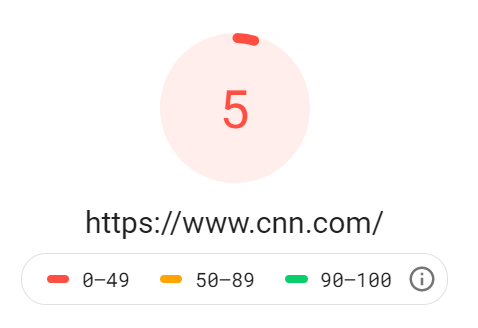Why Sitecore Will Thrive in the Coming Datapocalypse

Thought you had enough change to the digital landscape in 2020? Well, get ready for more, because 2021 and 2022 are due to be seismic. Here is some of what you can expect from the world of data.
- Apple will continue to tighten its screws on cookie workarounds and Google will phase out support for third-party cookies
- Privacy regulations such as Brazil's LGPD and Japan's APPI will go into effect and consumer expectations for consent management will increase
- The increasing importance of page speed in search ranking will reward marketers who move work from client browsers to their servers
- After 10 years of exponential growth in the marketing technology landscape, marketers will wake up with a data silo hangover that can only be treated by solutions that connect their marketing technologies
Given the implications of these predictions, we foresee a marketing Datapocalypse. This will be a chaotic period that quickly separates the marketers that prepared from those that didn't. So, how should you prepare? By investing in the right data skills, partners, processes, and technologies.
If you’ve adopted Sitecore's Experience Platform, you have a leg up in this preparation process. While Sitecore won't magically imbue your team with data literacy or DataOps, it sets a technological foundation for success that most of its competitors can’t match. We’ll look at how Sitecore addresses some of the trends we just mentioned to show you why.
Cookie Support
We've written about this before, but Sitecore provides a strategically useful feature in how it deploys server-side cookies for analytics, testing, and personalization. To help you understand the value of this feature, we’ll first back up and describe the alternatives: third-party and client-side first-party cookies.
Third-party cookies, commonly referred to as tracking cookies, are cookies set by domains other than the domain you're currently visiting. Take, for example, a publisher who has installed the Facebook pixel on their website. If allowed, Facebook will set a third-party cookie on your browser to track your activity not just on that single publisher, but on any other websites that have the Facebook pixel installed. Recent moves from Apple, Firefox and now Google to limit third-party cookies in a response to consumer privacy demands have restricted these efforts.
Client-side first-party cookies, on the other hand, have some more leniency from browser vendors because they can't, without major workarounds, be used to track users across websites. That said, Apple has limited the expiration of client-side first-party cookies to just seven days in Safari which has shaken the analytics industry.
Sitecore's chosen implementation method, server-side cookies, hasn't met the same level of resistance as third-party and client-side first-party cookies. Server-side cookies are set by the server responding to the user's request which makes them less prone to abuse by outside actors including marketing technology vendors. These cookies are typically what websites use to handle login and authentication so you can expect they will still be around for a while. All of this adds up to a win for Sitecore in terms of its ability to weather browser privacy changes.
Privacy Regulations
Given that Sitecore was founded in the EU, it should be no surprise that they've taken regulations such as the GDPR seriously from the start. Because of that, they've compiled a list of features and options built into Sitecore meant to address consumer privacy rights granted through GDPR and CCPA.
So you've heard of GDPR and CCPA, but are you familiar with Brazil's LGPD or Japan's APPI which will both become enforceable in the next two years? Consumer data privacy laws are appearing all over the globe and there's no reason to believe this trend will slow down. While it takes a lawyer to interpret the statutes of each of these laws, it doesn't take a lawyer to recognize that data-driven systems should be designed with privacy and governance in mind. This is where Sitecore shines. Let's review a few of its features:
- Restricting or erasing sensitive information (PII) - Sitecore's analytics and experience profile system allows administrators to mark any fields as "PIISensitive" which ensures that this data won't appear in search indexes and can be easily erased.
- Consent Management - Sitecore provides a "ConsentInformation" facet to ensure that consent information can be stored against every contact record. This can be paired with the "Explicit consent for tracking" setting which will ensure that consent has been given before tracking begins.
The consent management industry is due to grow from $317M to $765M in 2025 which tells you that organizations are beginning to take these regulations seriously. Now aren't you glad this platform takes privacy and consent seriously too?
Page Speed
If you've ever been tempted to try out a new marketing technology by installing a single line of JavaScript in your website HTML, we don't blame you. Vendors today bend over backwards to make sure that adopting their technology is as simple as possible. What you must reckon with, however, is that while the page speed impact of one vendor may be negligible, the impact of loading 30 vendors (a not-uncommon amount) can severely diminish user experience. We highly doubt that the marketing managers at www.cnn.com set out to achieve a 5/100 on Google's lighthouse performance score, but you can imagine how they reached that score after a long run of prioritizing functionality over performance.

It's worth running a page speed test to see how third-party scripts are impacting your site's performance.
How does Sitecore help here? Many common marketing functions are moved server-side. In this scenario, you have fewer scripts that must be downloaded from a third party and executed within the user's browser. A few examples:
- Sitecore Analytics
- Sitecore Forms
- Sitecore Testing & Optimization
- Sitecore Personalization
Each of these features can be outsourced to third party vendors, but marketers who leverage Sitecore's server-side approach will save their users' browser some networking and CPU cycles. With these features, client-side performance issues disappear because the business logic and requests are handled by the server, not the user's browser. This can be especially impactful in the context of personalization and A/B testing which are two common culprits of the dreaded FOOC (Flash of Original Content).
Connecting Data Silos
Selecting marketing technology is no easy task given the 8,000+ vendors to choose from. Given this reality, marketers have resisted locking themselves into a single vendor fearing that it will cause them to miss out on the next greatest advancement. This has resulted in a 'best-in-breed' approach where marketers select the best per-category vendor off the shelf and integrate it into their technology stack. This preference has been studied by Merkle who found that 67% of marketers surveyed preferred a best-in-breed approach. You can witness the results of these preferences every year through the Stackie Awards.
The common downside of this approach, however, is the inevitable rise of data silos. Vendors are not always incentivized to play nice with one another and business units may invest in competing vendors that accomplish the same task.
Sitecore can't solve all these problems on its own, but it can do its part by plugging in to an enterprise's technology stack. With features like XConnect, DEF, and Universal Tracker they've made sure that your user data won't be siloed. Also, their partnership with Salesforce has shown a willingness to support native integrations with major vendors. This commitment doesn't stop at customer data. Sitecore has made major bets in its acquisition of Stylelabs, now Content Hub, with the assumption that enterprises will want to connect content as well.
Conclusion
An investment in Sitecore is an investment in a platform that meets the moment. Trends towards greater user privacy, faster pages, and connected data are all ones that have been on Sitecore's radar whether you knew it or not. Leveraging Sitecore frees you up to focus on building the skills, processes, and partnerships to survive the Datapocalypse without having to worry about your platform.
Read more about data trends or learn more about our Data Integration and Activation services.



